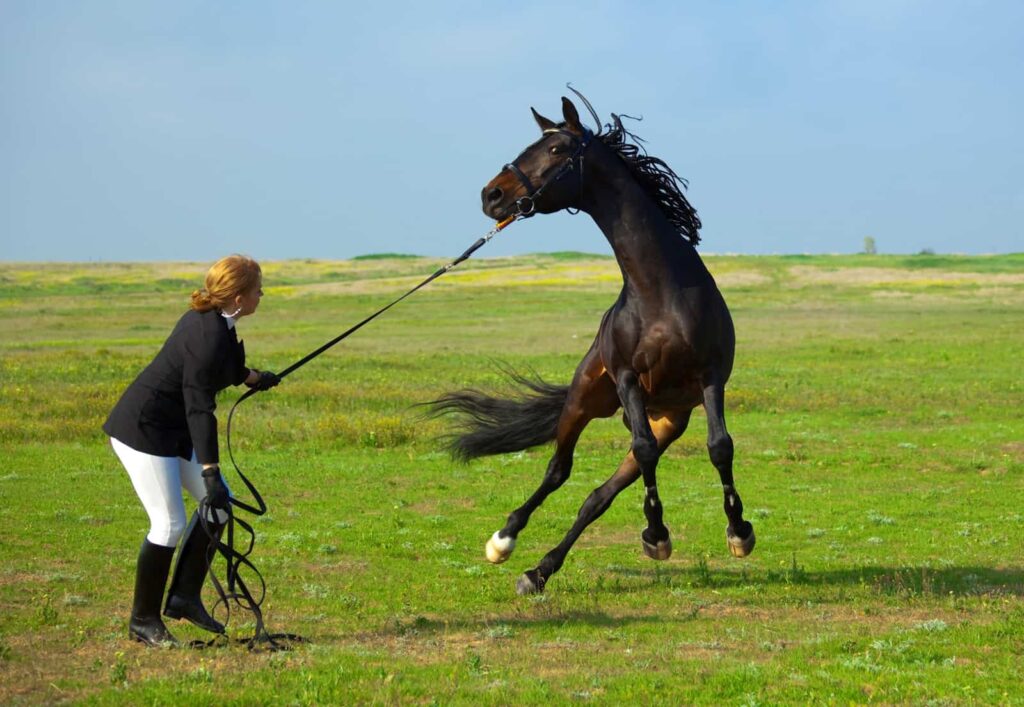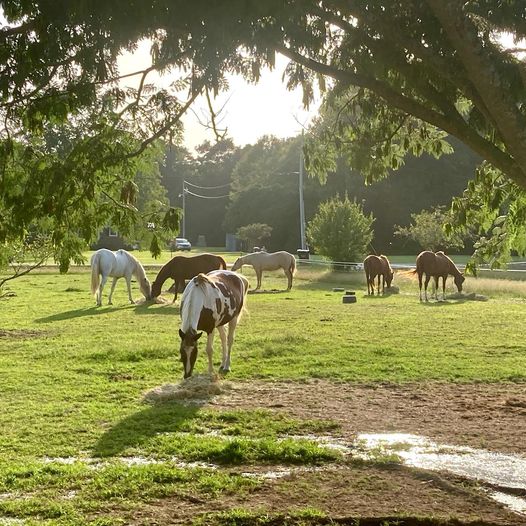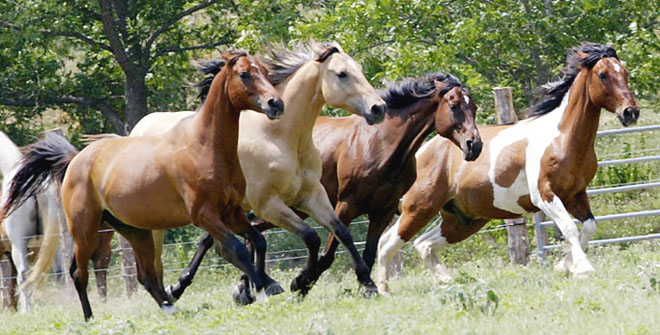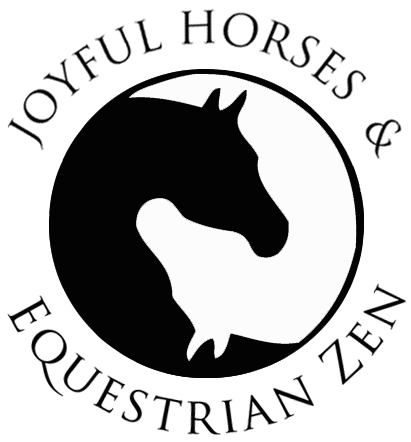Many horses experience stress due to modern boarding situations that are very different from how horses behave and eat in the wild. Here are a few tips to help your horse feel better and have fewer brain hiccups.

Your horse’s digestive system has evolved to eat lots of fibrous plants all day long. Big meals spaced far apart aren’t how herbivores in the wild eat. So horses don’t process big nutrition dumps very well.
If you feed your horses a couple times a day with nothing in between, the empty gut can cause an overload of acid in the stomach waiting for the next meal. The irritation of acid in an empty stomach may cause your horse to bolt their food (overeat and eat fast enough they might choke). Eating too quickly without enough water can also cause impaction colic, requiring emergency vet services.
It’s best to keep hay available for as long as possible in between feedings, and put your horse’s hay in a slow feed hay net. Give them more than you think they will need – you’ll be amazed how much they’ll eat when they have free choice! I like to use the 4 flake hay nets and stuff them full enough that when I toss them on the ground the horses can paw them and roll them around for extra fun. If your horse has shoes on, then you will need to hang the hay bag.

Feed your horse their grain/supplements/ alfalfa in a separate area from other horses. This is especially important for young horses that may feel like everyone is coming at them for their food. Giving horses space for them to truly relax while eating can help everyone’s mental health. And less stress means less acid production which equals better gut health.
Feeding your horse alfalfa everyday is important to aiding digestion. For older horses, feed alfalfa cubes soaked in water to form a mush. If you see visible hay particles in your horse’s manure, this indicates your horse isn’t chewing thoroughly and you might need to feed your horse their forage in mush form until you can get a dentist to help them. Even then, you’ll likely need to feed part of their daily nutritional requirement in a preprocessed form (ie. hay cube mush or extruded feed).
If your horse is acting crazy before or during feeding time, it’s possible they are experiencing ulcers along their digestive tract, so add omeprazole (e.g. Ulcergard or Gastrogard) to their regime for a few weeks. Then work to reduce the stress on their gut by increasing turnout and continuous access to forage, decreasing time with unhappy horses, and increasing alfalfa or adding other stomach soothing foods, such as aloe vera juice, or papaya enzyme tablets.

If your horse has old injuries (who doesn’t?) or is over 15 years old, take into account that cold weather can cause pain to flare in those injuries. Pain can cause stress, stress causes increased acid production, and that leads to digestive problems. Also, pain meds can cause stomach upset. If your horse is acting colicky and you give them banamine, then the next day their stomach can be unhappy from the drugs. So if you have to give pain meds to your horse, support their stomach with alfalfa and omeprazole once the colic clears.
Aloe vera juice can help prevent future issues, but once you have an instance of colic or ulcer flare, go ahead and use the omeprazole. Caveat being that not all ulcers respond to Omeprazole quickly or at all- so if you don’t have immediate results scoping or other tests might be necessary.
The most important thing to remember is that you can make many small simple adjustments in your horse’s routine and living situation that will alleviate much of the discomfort they may be experiencing in their gut due to feeding schedules and choices of forage and supplements. In turn, this will help their attitude in general, and toward you and your training. If you’d like to discuss your horse’s specific situation and simple ways to improve it, please contact us for a consultation or sign up for our online Horsekeeping course.
